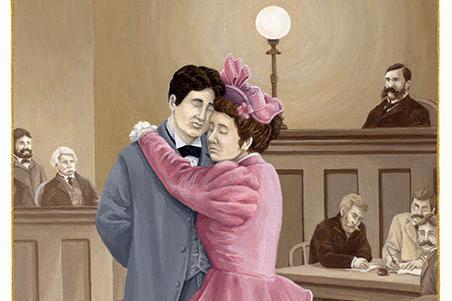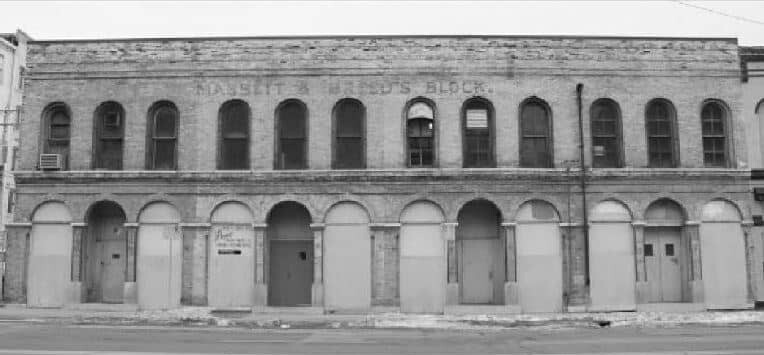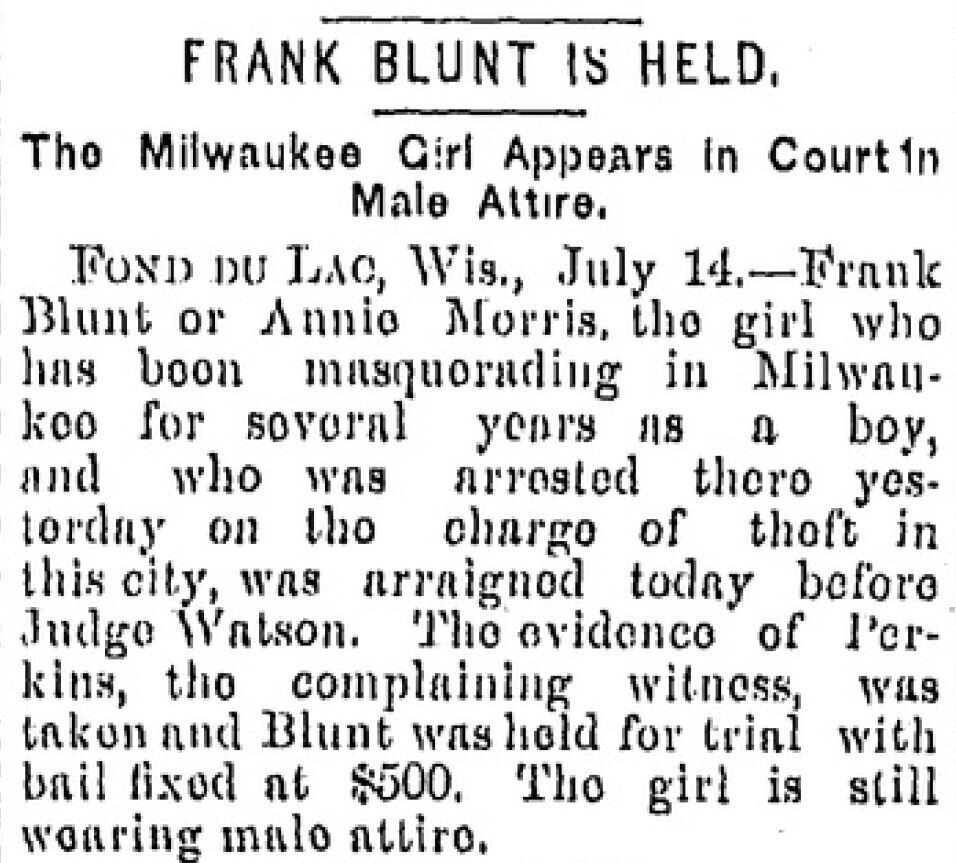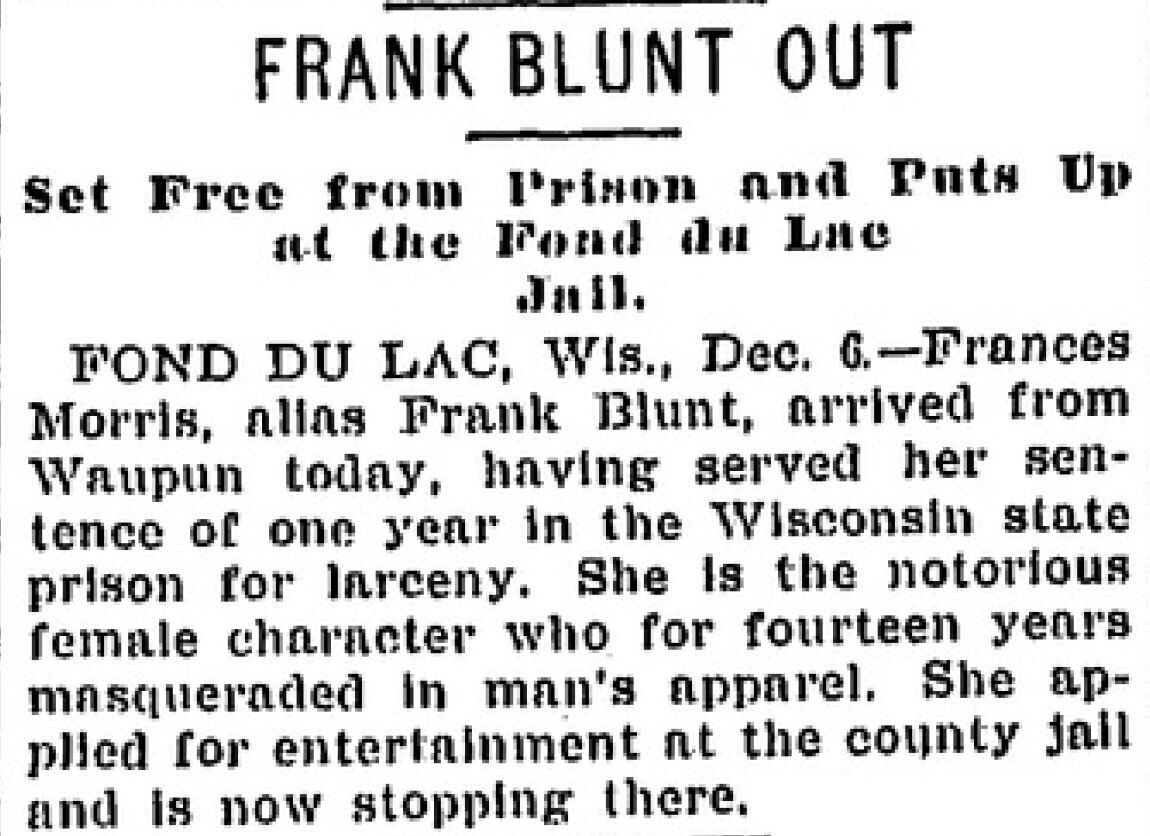
Frank Blunt: legendary boss of the Bad Lands

Once he put on a man's suit, he felt like himself for the first time.
On July 12, 1893, Frank Blunt was arrested in downtown Milwaukee. It was charged that Blunt stole $175 from the home of J.G. Perkins of Fond du Lac. Blunt had stayed at the Perkins home for a few days, claiming to be a long-lost nephew. After he left town, money was discovered missing and an empty wallet was found in a chimney.
Blunt was actually a biological woman, and not just any woman, but long-missing Annie Morris of Halifax, Nova Scotia. Blunt confided that he run away from a cruel father in 1865 and “lived as a man” for the past 15 years.
She attached herself to a disabled Civil War veteran, Jesse Blunt, and passed as his son as they traveled across the country. Only Jesse Blunt knew the truth.
Frank Blunt married Lulu Seitz in Fond du Lac. After six years, he had affairs with other women, and Lulu called for a divorce. Neither she nor her family ever knew Blunt was not a biological man.
Later, Blunt married Gertrude Field of Eau Claire, who funded Blunt's defense. She told the Milwaukee Journal she would fight the charges all the way to the Supreme Court.
Frank told the judge that once he put on a man's suit, he felt like he was himself for the first time. He drank, smoked, swore, and gambled as much as any roughneck, and this is who he felt himself to be. He did not intend to return to women's clothing or a women's life, no matter what the verdict.
Blunt was sentenced to one year in prison in January 1894. "Wisconsin's Pantaloon Maiden Must Suffer," screamed the headlines. Blunt's pride -- and his refusal to be ridiculed -- really struck a nerve with the press.
Jesse Blunt remained in Milwaukee until his death in 1907. Several of his children changed their names to distance themselves from the controversy. His descendants are still living in Wisconsin today.
Frank Blunt was released on December 6, 1894 under the enforced identity of “Francis Morris.” His final whereabouts remain unknown to this day. Unfortunately, he has been forgotten as the transgender pioneer he was.
For over 42 years, the tavern next door to Blunt’s would be an LGBTQ destination, eventually housing Nite Beat (1960-1968,) Castaways (1968-1971,) Seaway (1972,) Jamie’s (1973,) and Ball Game (1974-2012.)
 Site of the Blunt Saloon (194 S. 2nd St)
Site of the Blunt Saloon (194 S. 2nd St)
recent blog posts
April 06, 2025 | Michail Takach
Camille Farrington & Vicki Shaffer: standing up for students
March 31, 2025 | Amy Luettgen
March 29, 2025 | Michail Takach
The concept for this web site was envisioned by Don Schwamb in 2003, and over the next 15 years, he was the sole researcher, programmer and primary contributor, bearing all costs for hosting the web site personally.






